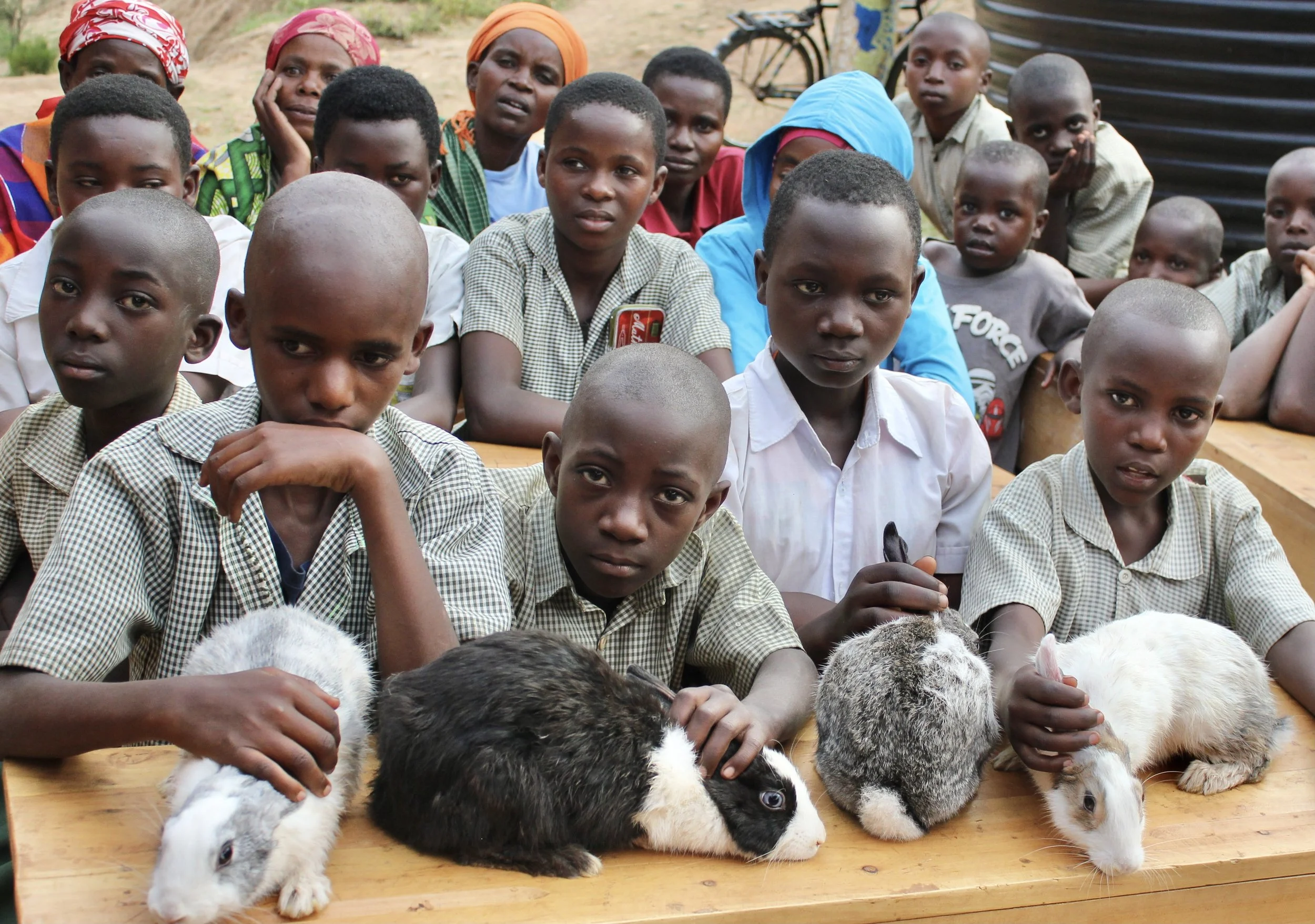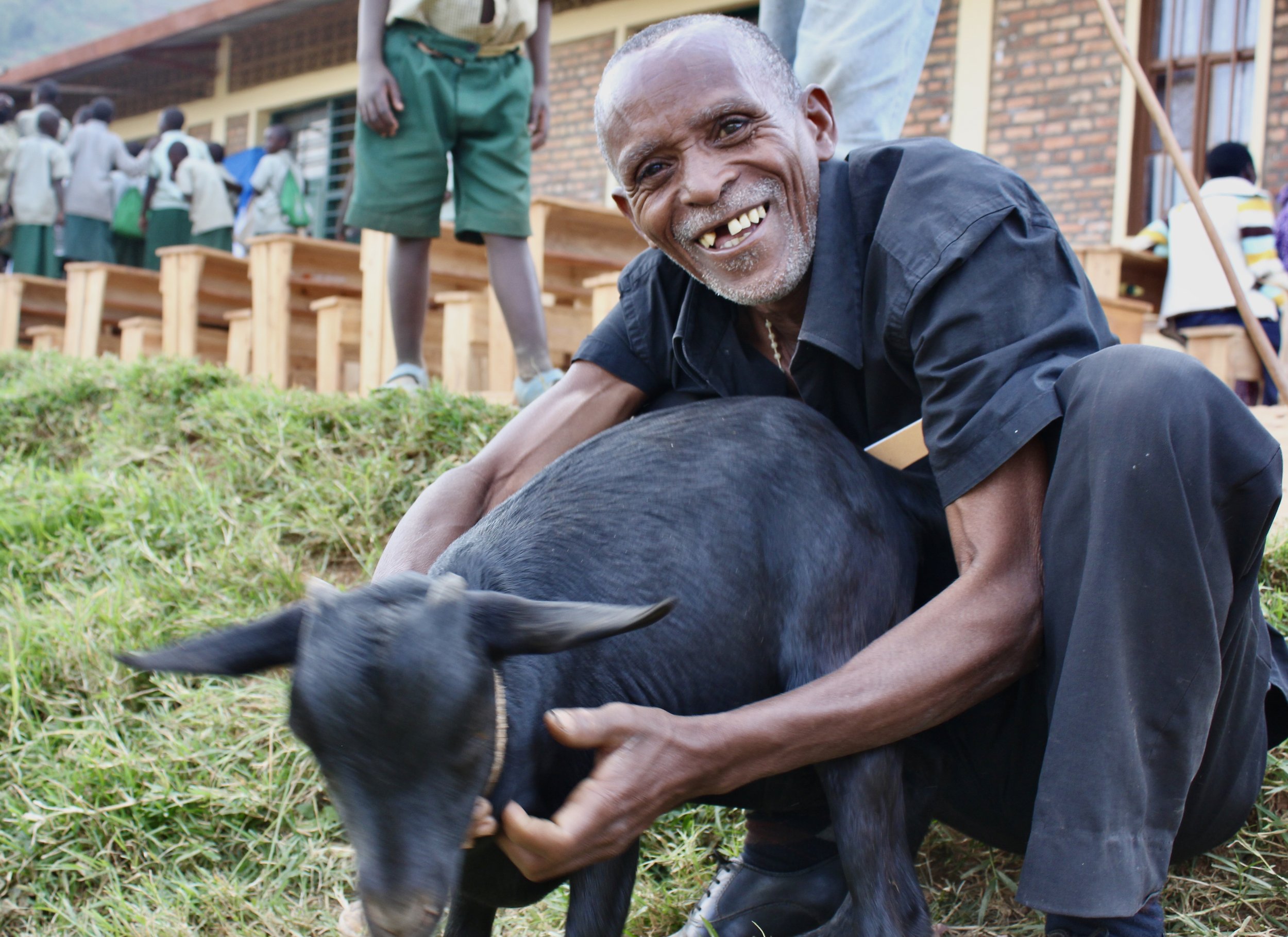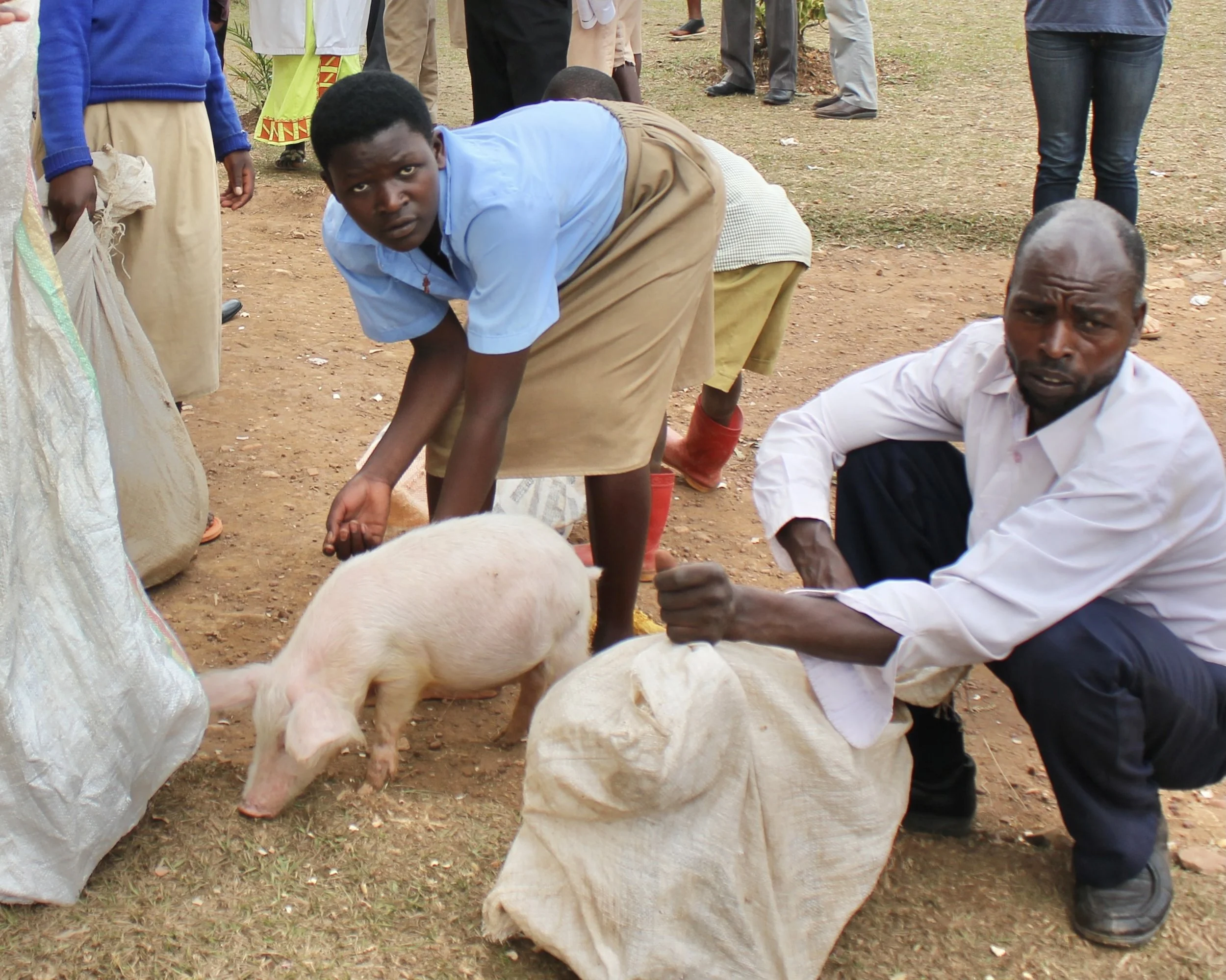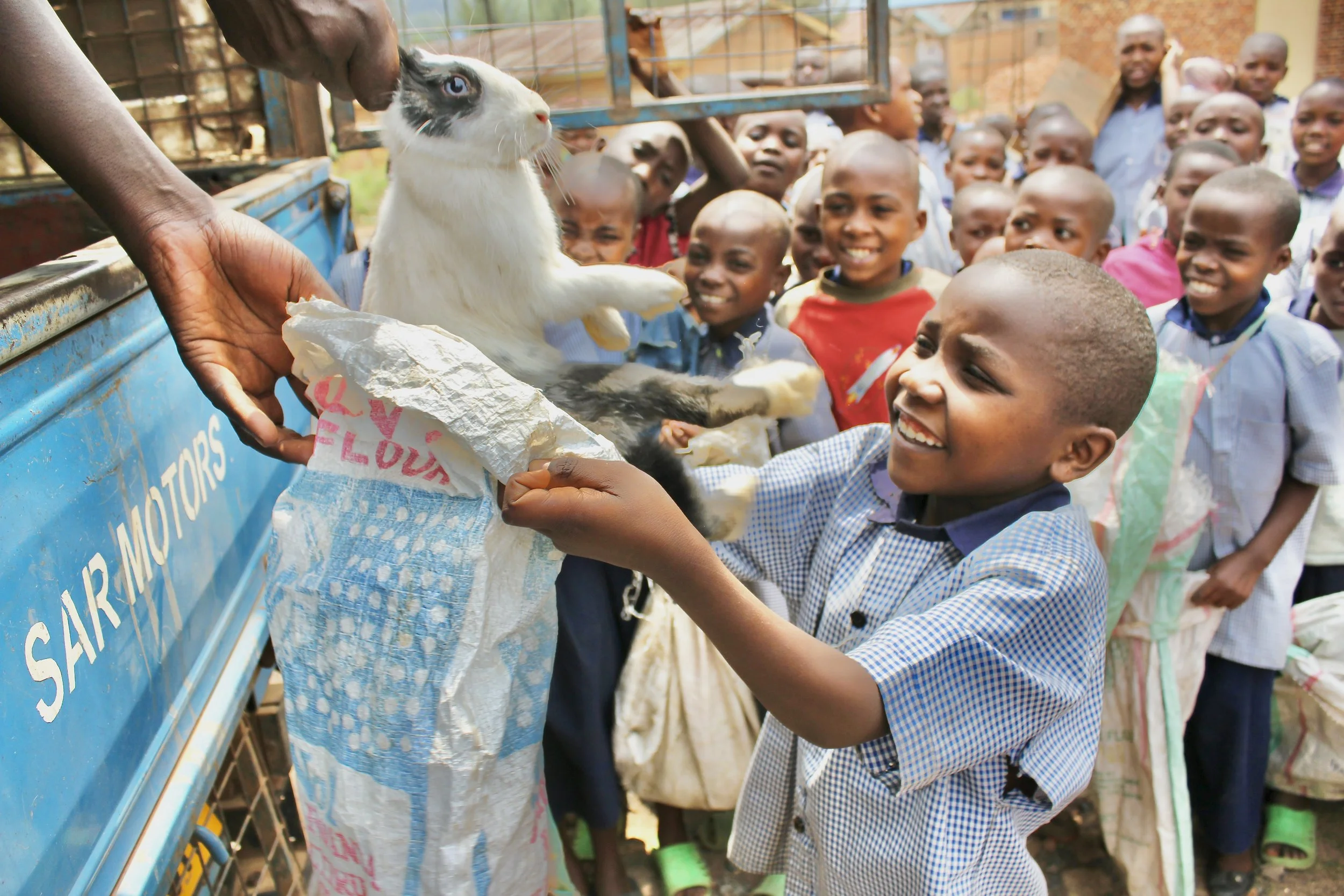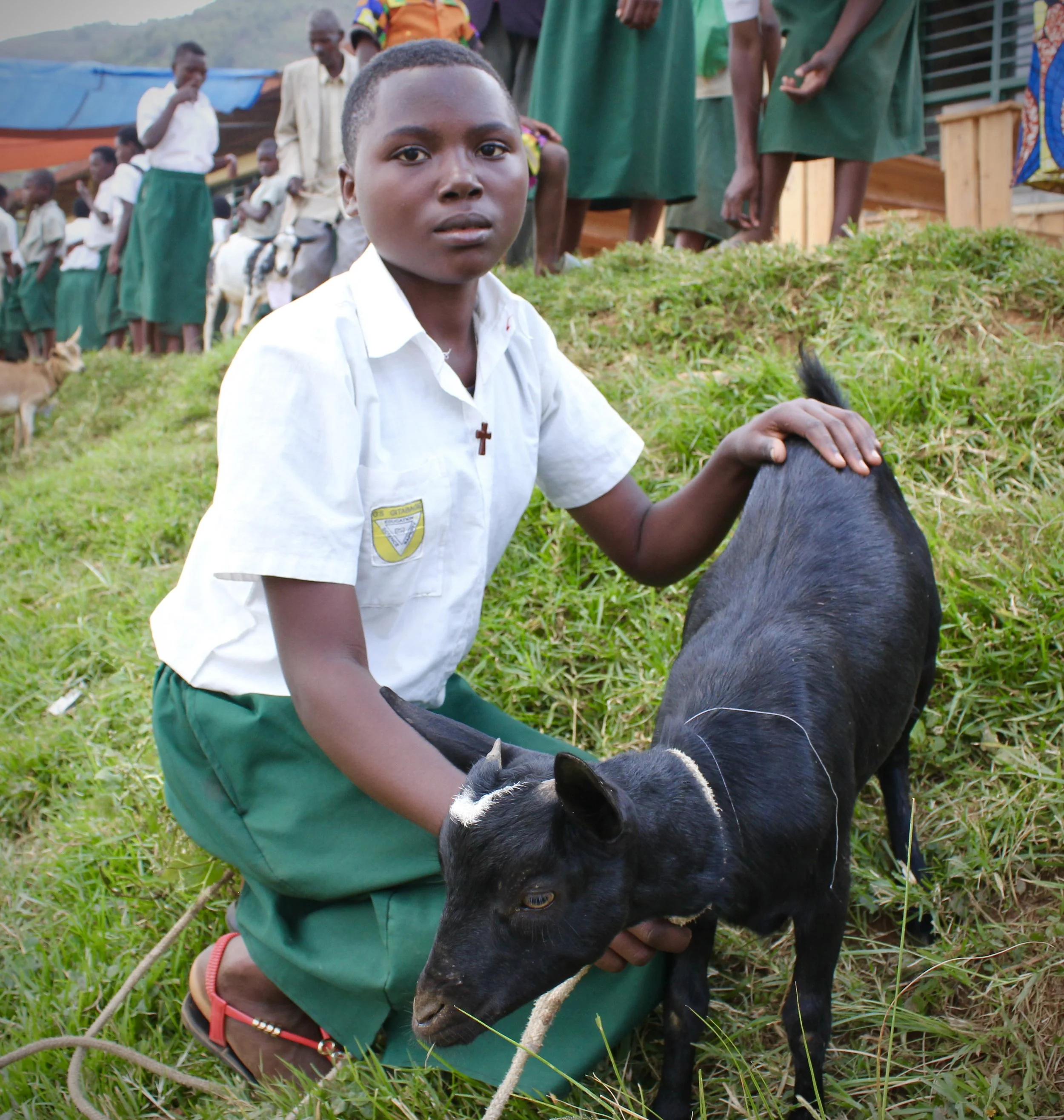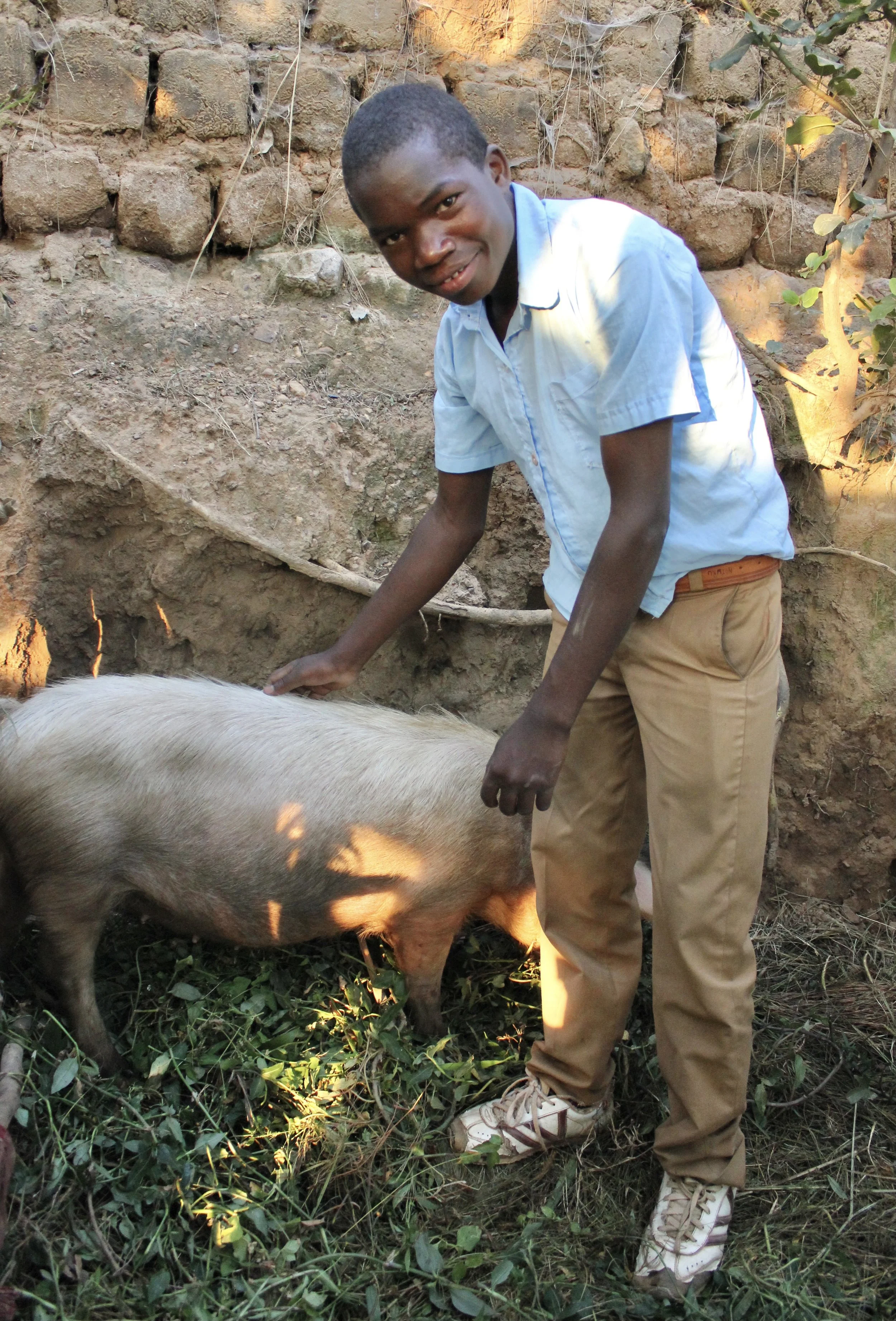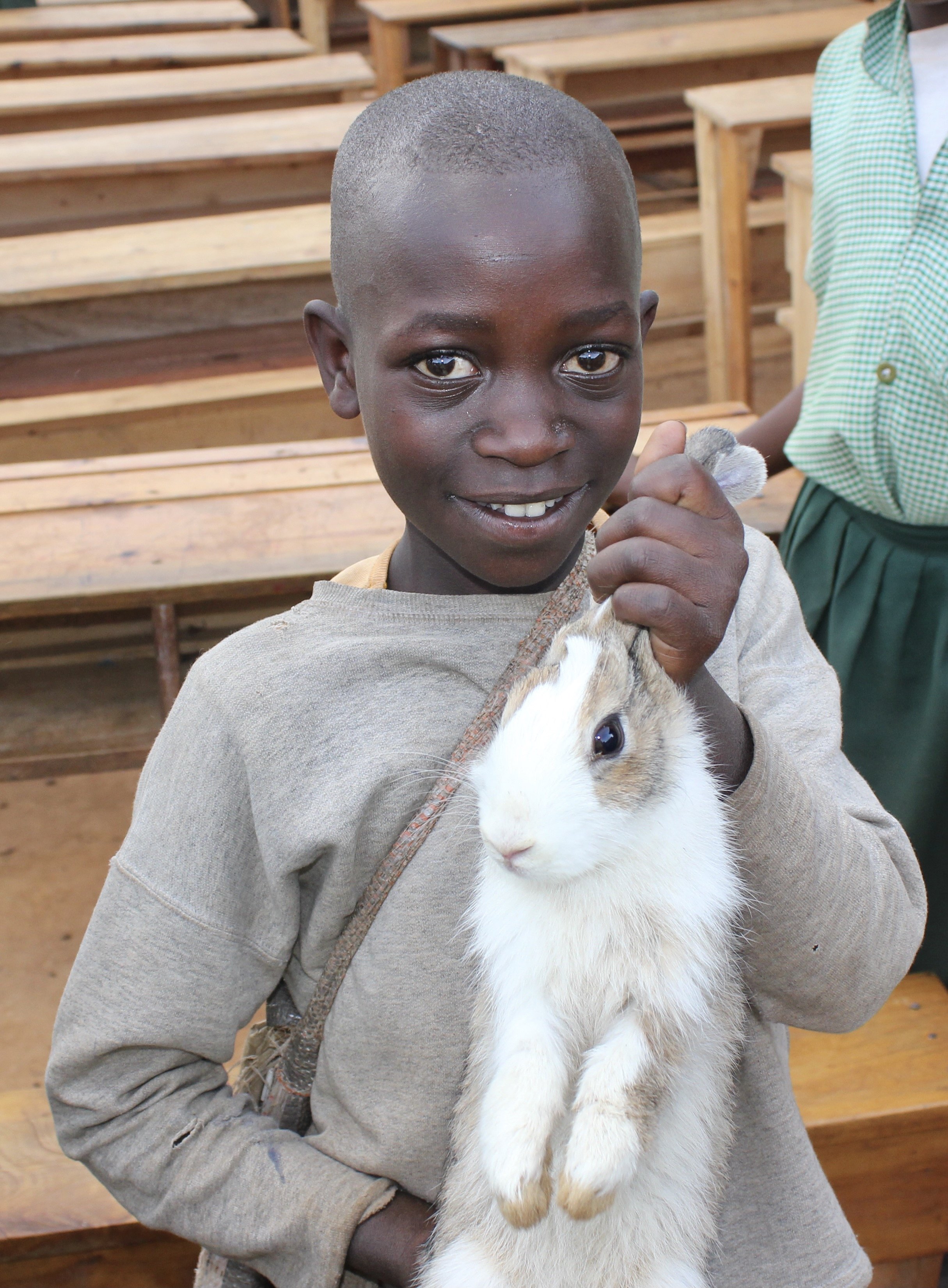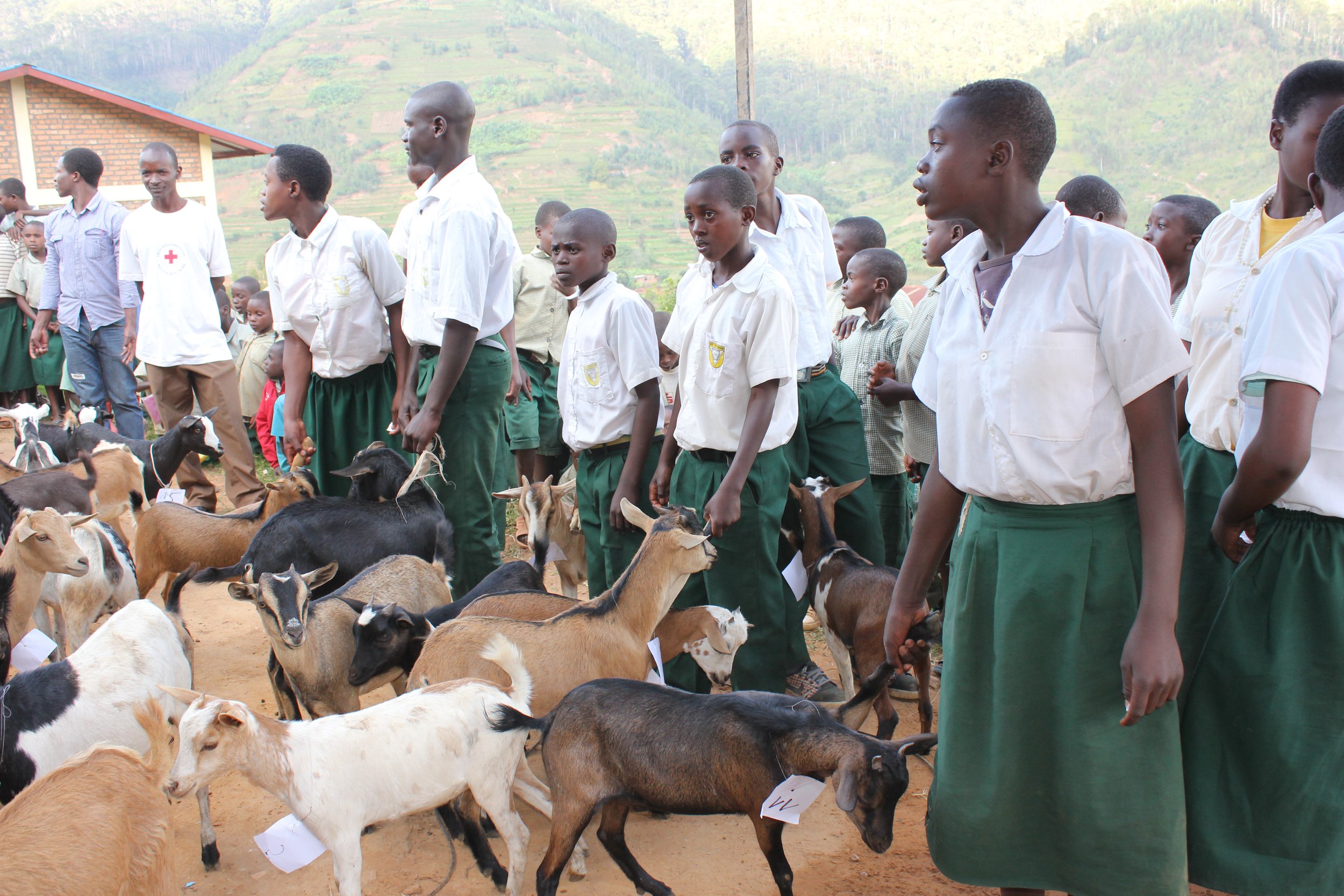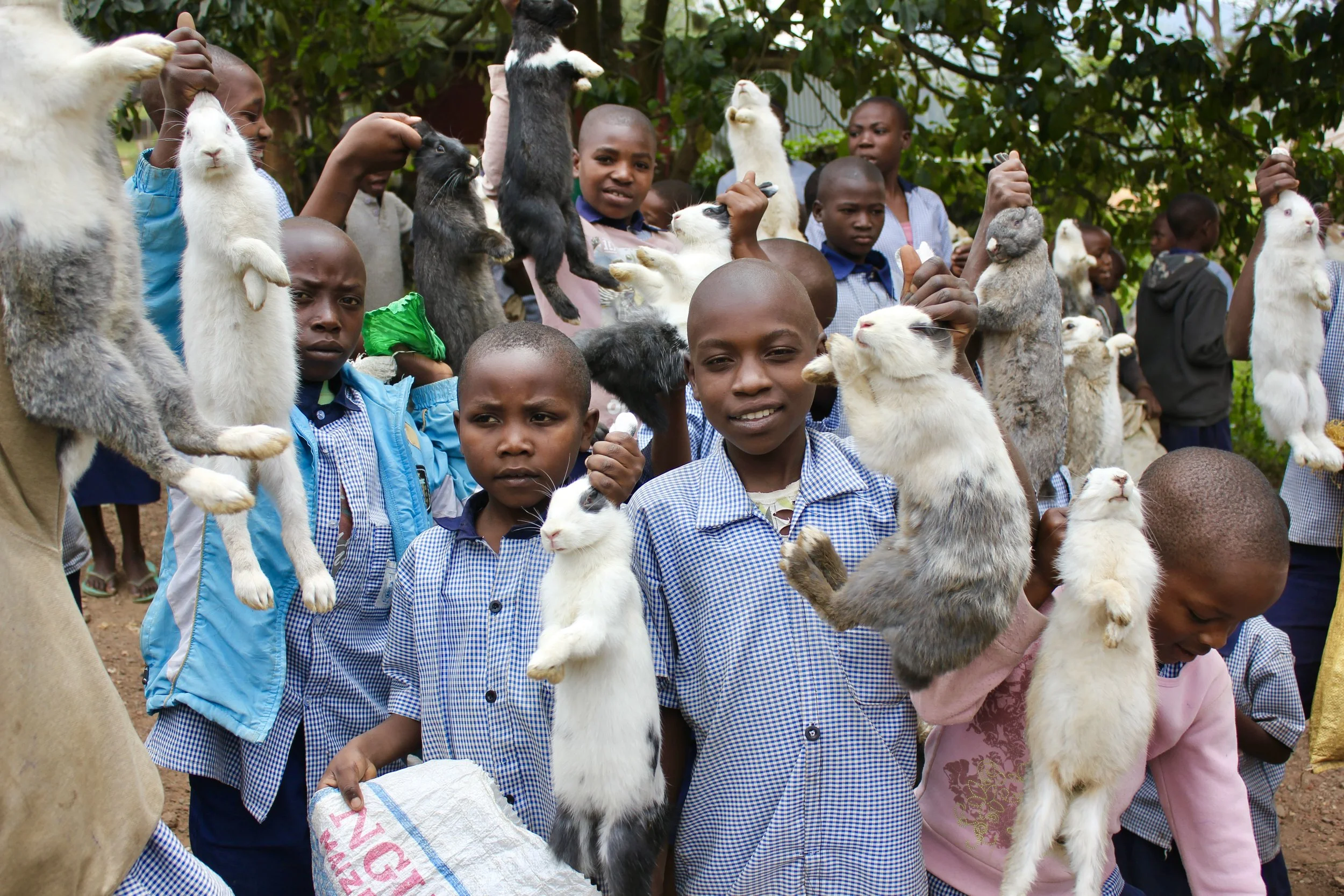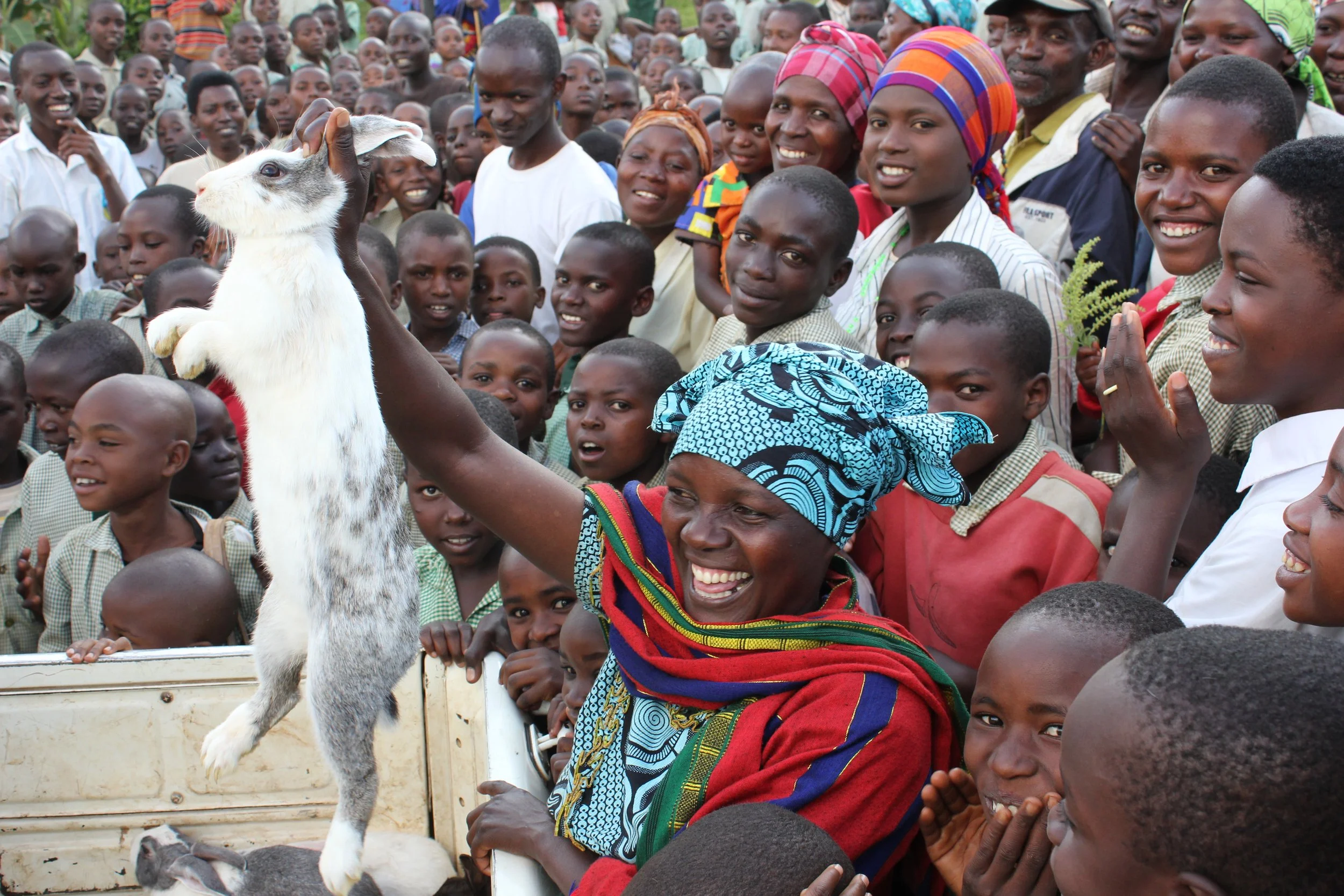Donated livestock increases revenue in the wider community.
Eating, milking, and breeding livestock effectively helps rural families supplement their household income. This enables more families to pay their children’s school fees, which in turn improves school attendance. Nutrition in the community also improves, and multiple generations learn animal husbandry skills.
In 2014 Sacramento Country Day School began funding rabbits, pigs, and goats for Rulindo students ta take home and raise. Hundreds received animals each year until the program was discontinued in 2018, when focus shifted to bringing more cows to school campuses. At that time we also invited our partner schools to award cows to “outstanding educators” each year, which we hoped would help retain excellent faculty members and improve life for their families. Two teachers received cows before the pandemic interrupted that program also.
Our partner schools across Rulindo are now asking REE to restart the small animal program, as rural communities face ever-tougher economic times and families struggle with unemployment and relentless inflation. In 2024 we began trying to increase parental commitment and accountability by asking them to show adequate livestock shelters before their children bring animals home. Parents also sign contracts pledging to monitor the health of donated livestock, and are encouraged to give back a percentage of animal offspring to their local schools and neighbors.
Veteran economics teacher Chantal was awarded a cow in 2018, which she took home to her young family.
Students at GS Rukingu receiving pigs to take home and breed.
